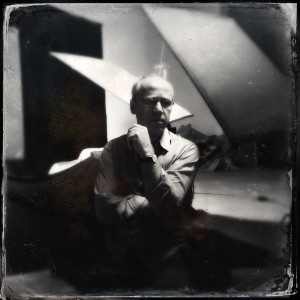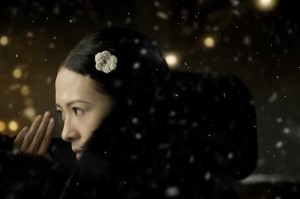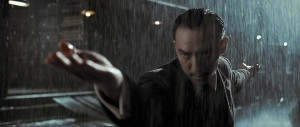
Hong Kong director Wong Kar Wai’s movies, known for their stylishness and elegance, such as In the Mood for Love, have always featured brilliant cinematography. And his latest film, The Grandmaster, a Chinese martial arts epic is no exception. The French director of photography is Philippe Le Sourd. He delivers lensing so sumptuous and atmospheric – raindrops glisten like diamonds – that it can captivate viewers, even if kung fu movies aren’t their particular cup of tea. For aficionados, this may be the ultimate martial arts film.
Le Sourd has already won awards for best cinematography at Taipei’s Golden Horse Awards, and at the Asia-Pacific Film Festival, recently held in Macau. And The Grandmaster is on the Motion Picture Academy’s short list of possible nominees for the best foreign film Oscar.
When Le Sourd signed on for the project, he did not expect that it would wind up taking three years of his life. The often arduous shoot lasted nearly 360 days, stretched over the three-year span, and much of the filming took place under disparate weather conditions in remote locations, from the snowy northeast of China to tropic areas in the country’s south. Individual segments took weeks or even months to film, such as a stylized and erotic fight at a train station between the film’s male and female stars, played by Tony Leung and Ziyi Zhang, and also a screen-filling funeral procession in the snow.

None of this should have been too surprising since the DP was working with one of China’s most renowned directors who is known for his obsessive attention to detail, and his willingness to re-shoot parts of scenes after more than a year has passed. That presented major lighting challenges for Le Sourd who tried to keep the look consistent. He kept a detailed notebook of his settings to provide some continuity, but he was ultimately forced to deal with the passage of time. “You no longer light a scene shot in 2009 the way you do it in 2012,” he said. “The faces of the actors change, and you change personally by making a film over such a long period of time.” Another challenge, Wong Kar Wai also worked without a script for The Grandmaster, as is his wont, deciding what to shoot each day, keeping the actors and crew on tiptoe.
The Grandmaster is the story of Ip Man, a kung fu master who develops a new style, (later in his life he became a teacher for the real Bruce Lee), and who gains prominence when he wins a series of challenges. It is set in China of the 1930s when the Japanese have already invaded Manchuria, and is filled with a wistful nostalgia for the past. Some scenes take place 20 years later in the 1950s.
 The film’s main course consists of over a dozen martial arts fights choreographed by internationally renowned action director Yuen Woo Ping (The Matrix, Kill Bill). “Wong didn’t want any flying scenes, he wanted every fight to be stylistically authentic,” explained the DP. “He would concentrate on the smallest details – how hands were positioned for example, so they would be right for each of the different styles of combat,” said Le Sourd. The DP combined a sweeping view of the action, with tight shots and close ups, which were carefully edited.
The film’s main course consists of over a dozen martial arts fights choreographed by internationally renowned action director Yuen Woo Ping (The Matrix, Kill Bill). “Wong didn’t want any flying scenes, he wanted every fight to be stylistically authentic,” explained the DP. “He would concentrate on the smallest details – how hands were positioned for example, so they would be right for each of the different styles of combat,” said Le Sourd. The DP combined a sweeping view of the action, with tight shots and close ups, which were carefully edited.
Le Sourd said he had no regrets about the three years he spent on the movie. “It was an exciting artistic and emotional adventure and working with Wong Kar Wai is amazing.”
Would he ever take on another film that took so long to shoot? “I would have to talk to my wife,” he replied.





